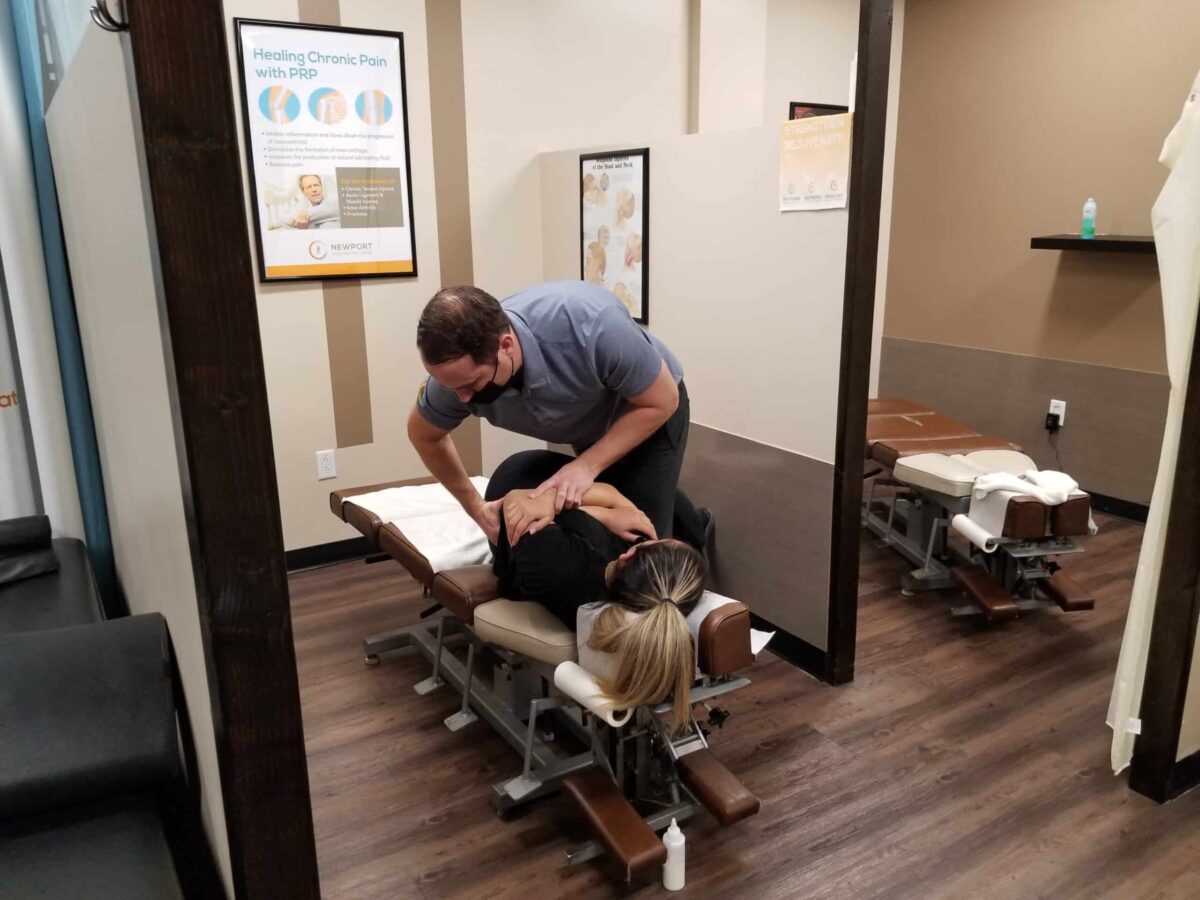
A pinched nerve happens when a bone or other tissue presses against a nerve. Doctors know that pinched nerves exert excess pressure to a nerve can cause pain and other signs and symptoms. Some signs of a pinched nerve indicate a serious problem that could cause you to experience severe or long-term symptoms. In some cases, the symptoms of a pinched nerve can mimic other conditions.
In general, the signs of a pinched nerve are:
Nerve pain occurs at the point where the nerve is pinched. Tingling occurs because pinching a nerve disrupts the nerve’s communication with the brain. Numbness may start as tingling then turn into widespread numbness.
These may be signs of a serious problem that needs immediate medical attention. A pinched nerve can deteriorate, which means that an untreated pinched nerve can cause worsening signs and symptoms or symptoms that persist for a long time.

A pinched nerve causes signs and symptoms, which pinched nerve doctors call “radiculopathy". Our Patients commonly refer to this as either neck pain or back pain. A pinched nerve can happen anywhere in your body. Perhaps the best-known type of pinched nerve is the sciatic nerve; a pair of sciatic nerves extend from your spinal cord and each sciatic nerve runs down one leg. Carpal tunnel syndrome is an example of a pinched nerve in the wrist, which can cause pain, weakness, numbness, and tingling in the hand and fingers.
The first sign of a pinched nerve is often localized pain in the neck, which means you feel pain at the point where the nerve becomes pinched. A pinched nerve may also cause neck pain in areas that are far away from the point of pressure. These symptoms can include pain, numbness, burning, tingling, muscle spasms, and muscle weakness of the neck.
The specific symptoms of a pinched nerve largely depend on the exact location of the pinched nerve. You may experience a pinched nerve in your neck, which pinched nerve doctors call “cervical radiculopathy.” A pinched nerve in your neck will cause symptoms in your neck, shoulders, biceps, forearms, fingers, hands, and different muscle groups in your upper body. Signs of a pinched nerve in your neck include arm pain, weakness, and poor reflexes.
A pinched nerve in your middle back, an area of your body known as your thoracic spine, will cause symptoms in your upper or middle back. These symptoms can radiate, or spread, through your stomach or chest in a way that can be easily confused for heart problems. The back pain associated with this is a common condition our chiropractors see.
When you experience a pinched in your lumbar spine, which is your lower back, you might experience symptoms in your lower back, buttocks, hips, legs and in your feet. A pinched nerve in your lumbar spine may be the result of a problem with a disc, which is a rubbery cushion that prevents the bones of your spine from grinding against each other or against nerves as you move. Discs can sometimes bulge outwards to press against nerves to cause symptoms. Arthritis, bone spurs, or swelling from a ligament injury can also cause signs of a pinched nerve.
One of the most common injuries that see in our office is a pinched nerve in the neck. There are a few possible reasons why this might happen:
Workplace Injury: This is a possible reason why you might end up with a pinched nerve. There are nerves that leave the neck and power every other part of the body. If you lift heavy objects or take a tumble down the stairs, this could lead to ligament sprains and muscle strains. This could lead to inflammation that leads to swelling in the neck. This swelling could compress the nerves in your neck, leading to a pinched nerve.

Sports Injury: One of the most common causes of a pinched nerve in the neck is a sports injury. Particularly in contact sports, someone might end up with an injury called a stinger, which is the colloquial name for a pinched nerve. This could lead to shooting pains that leave the neck and travel down the arm.
Car Accident: Finally, an auto accident is another common cause of a pinched nerve in the neck. During a collision, rapid shifts in momentum could cause your neck to bounce from side to side quickly. This can knock the bones in your spine out of alignment, causing them to compress the nerves in your neck. One of them might be pinched, leading to a compressed nerve.
The good news is that there are a few treatments for a pinched nerve in your neck options.
If you have suffered a pinched nerve in your neck, there are a few treatment options available. First, you need to alleviate any swelling that might be present. Swelling is a common cause of a pinched nerve, so ice is one of the first treatment options. After this, you need to treat knots that might have formed in your neck. These knots can roll up nerves in them, leading to a pinched nerve. This is where massage therapy and physiotherapy can be helpful. This can alleviate tension and stress on the muscles in the neck, making it an effective treatment for a pinched nerve.
Finally, chiropractic care is also an important treatment method for someone who has suffered a pinched nerve in the neck. A chiropractor understands how to target alignment issues involving muscles, ligaments, and bones in the neck. Adjustments and manipulations are an effective treatment for a pinched nerve.
In addition to the neck, you might end up with pinched nerves in your back as well. There are a few possible reasons why you might have a pinched nerve in the back. These include:

A Herniated Disc: This might be the most common cause of a pinched nerve in the back. If you suffer a herniated disc, then the typical space that is usually present between the bones in your back is gone. As a result, the vertebrae compress nerves, leading to shooting pains. The most common location for a herniated disc is either between L3 and L4 or L4 and L5.
Compression Fractures: Compression fractures in the back can lead to a pinched nerve as well. If you are involved in a fall or a car accident, you might be diagnosed with compression fractures in the back. This compression can involve the nerves as well as the bones, leading to a pinched nerve.
Posture Issues: Finally, posture issues can lead to a pinched nerve as well. If you have poor posture at work or while you sleep, your spine can move out of alignment. This could lead to a pinched nerve, causing shooting pains.
If you are looking for pinched nerve relief, there are a few options to consider.
A chiropractor can come up with a well-rounded treatment strategy to provide pinched nerve relief. One of the most important treatment tools is spinal decompression. This can be used to slightly increase the amount of space between the bones in the back, alleviating pressure on a pinched nerve. It might take a few sessions; however, this addresses the root cause of a pinched nerve in the back, leading to pinched nerve relief.
If you have a pinched nerve and need treatment to relieve pain and improve function, make an appointment with our doctors at Zaker Chiropractic. Our chiropractors offer a wide variety of services to diagnose pinched nerves and provide personalized care for the treatment of pinched nerves without the use of surgery. Zaker Chiropractic has several locations to serve you. Call (949) 734-4454 for an appointment in Newport Beach Pain & Wellness in Newport Beach, (424) 235-1562 for South Bay Pain & Wellness in Torrance, or (310) 831-0003 Ext. 1 for an appointment with San Pedro Pain & Wellness in San Pedro. Each clinic offers a full range of services to treat your pinched nerves.
